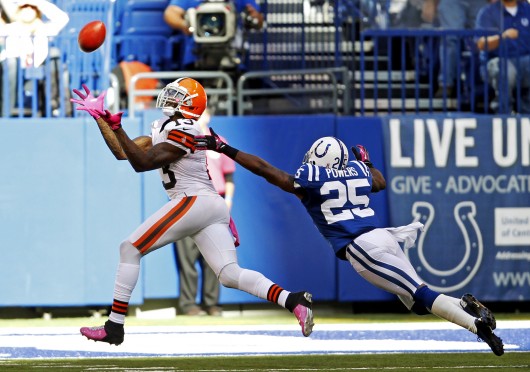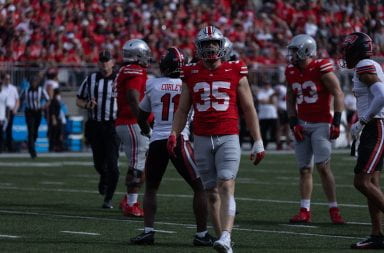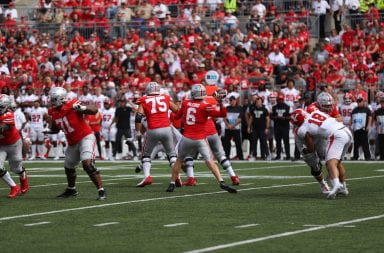
Cleveland Browns wide receiver Josh Gordon (13) just misses a catch that would have been a touchdown against Indianapolis Colts cornerback Jerraud Powers (25) on a play during second half action on Oct. 21, 2012, in Indianapolis. The Colts won, 17-13.
Credit: Courtesy of MCT
While the NFL has been garnering attention lately for its handling of domestic violence, much of the league’s attention has been fixed on reworking its drug policy. And after a quick look at the reported major points of the new policy, it’s easy to see why it needed an update.
First of all, it was clear that marijuana should not be treated as seriously as other drugs considering some states have gone so far as to legalize the drug, opting for regulations similar to those that surround the consumption of alcohol. That did not stop the NFL — under its old policy — from imposing a 16-game suspension on Cleveland Browns wide receiver Josh Gordon for a repeated failed test.
For marijuana to be put in the same category as other drugs, ones that are dangerous or performance-enhancing, was a sign that the policy needed some reworking. Under the new policy, the punishments for failed marijuana tests are treated differently than those other drugs, such as cocaine or amphetamines.
Furthermore, the threshold for a positive marijuana test was stunningly low, at 15 nanograms per milliliter. By comparison, the threshold for the Olympics by the World Anti-Doping Agency is 150 nanograms per milliliter, a whopping 10 times higher.
While the reworked threshold of 35 nanograms per milliliter is still on the low side, it is an improvement. Players and agents complained that under the old limit, simply being near someone who was smoking marijuana could get your sample over the threshold.
The next major update to the drug policy was a two-game suspension without pay for a player’s first DUI conviction. The key here is that the suspension is for a conviction, not an arrest. I find this very interesting, because it seems the NFL is trying to make a point to give its players the benefit of the doubt in legal matters.
Take the recent Ray Rice or Adrian Peterson situations. Rice, despite the writing being on the wall that he assaulted his then-fiancee Janay Rice in an elevator in Atlantic City, N.J., was only handed a two-game suspension. It was later, when a video surfaced of the running back punching her, that the NFL took things more seriously.
Peterson, on the other hand, has yet to receive a suspension despite openly admitting that he beat his 4-year-old son. Furthermore, the Minnesota Vikings announced they activated Peterson this week, indicating the NFL will not be suspending him at this time (on a related note, it will be interesting to see if Peterson gets a Rice-style crackdown now that it has surfaced that he has also beaten another 4-year-old son of his).
These situations relate back to the reworked DUI policy. Even if it is known that the player was indeed driving under the influence, the NFL is determined to grant him his due process and try to avoid being the judge and jury. There is, however, an exception for “aggravating circumstances,” such as extreme intoxication, injury or death to a third party, or prior arrests. In such cases, the NFL could still hand down a punishment before the legal process plays out.
Additionally, the league will finally adopt testing for human growth hormone. This is a no-brainer, and it shocks me that it has taken this long to get on board with.
It will be interesting to see what effect the new HGH policy will have. With the sheer size of many of these players, it is hard for the thought to not at least creep into your mind about possible illegal measures.
The punishment will be a four-game suspension for a first positive HGH test. That might not seem like the harshest punishment, but it is important to remember that the NFL only has a 16-game schedule. In MLB, a first positive test for performance-enhancing drugs results in a 80-game suspension, which is about 50 percent of the 162-game regular season. Compare that to the 25 percent a four-game suspension in the NFL brings, and, while still significantly less, it becomes more reasonable, especially since the 80-game rule is a recent change for MLB, which used to hand out 50-game suspensions for the first offense.
The NFL has been much scrutinized for its policies this year, and its main response tactic seems to be covering its tracks. At least this cleanup was mostly done right.


